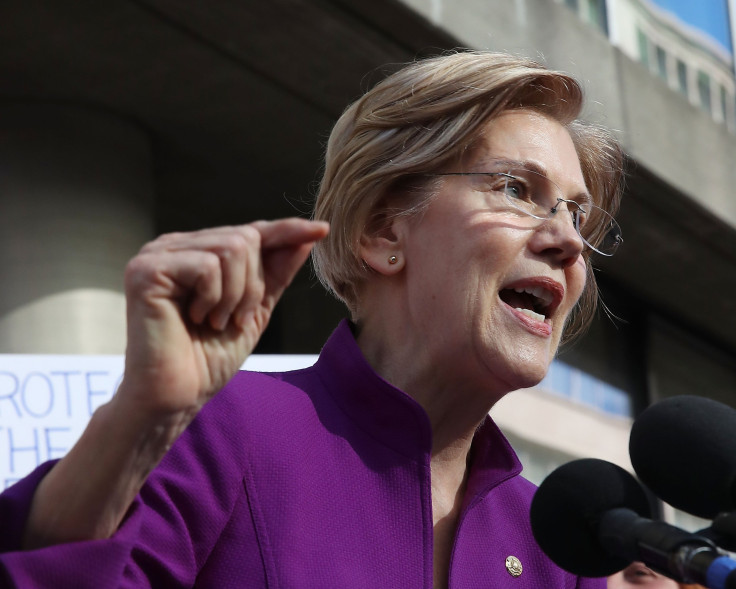Donald Trump vs. Elizabeth Warren: A Look At Both Candidates' Trade Policies

Massachusetts Sen. Elizabeth Warren, who is among the top contenders for Democratic nomination in 2020, explained some nuances of her trade policy Monday to Ohio voters. The new trade plan comes ahead of the upcoming Democratic debate and seemingly contrasts the trade policies of President Trump.
Warren believes that the U.S. should use its trade leverage to force other countries to raise their environmental protection and labor standards.
"Before we start negotiation with anyone, we say: 'You've got to raise your standards, you've got to raise your labor standards, you've got to raise your environmental standards," Warren said at a rally in Toledo.
Posting on Medium, Warren on Monday provided a comprehensive outline of her trade policy.
"As President, I won’t hand America’s leverage to big corporations to use for their own narrow purposes — I’ll use it to create and defend good American jobs, raise wages and farm income, combat climate change, lower drug prices, and raise living standards worldwide. We will engage in international trade — but on our terms and only when it benefits American families," she wrote.
Warren also struck a tone similar to Trump's policies on China. China, the world's second-largest economy, is frequently scrutinized for its lax labor and environmental regulations.
"We’ve let China get away with the suppression of pay and labor rights, poor environmental protections, and years of currency manipulation," Warren wrote.
But Warren has frequently criticized Trump's trade policies, particularly his use of tariffs against countries like China. In a blog post last week, she blamed his trade policies for shocking a vulnerable American economy.
Trump often believes that trade policy is a zero-sum game, with a winner and a loser. He built a part of his 2016 campaign and electoral platform on criticizing China for its currency manipulation and cheap imports that he believes harm American manufacturing.
Trump frequently cites how China, and even European countries, "are taking advantage" of the U.S.
He has promoted the U.K.'s exit from the European Union, also known as Brexit. Trump has not expressed reservations about a potential no-deal Brexit, which Warren worries would harm the U.S. economy due to trade with Europe.
For Trump, a trading partner may not necessarily have good environmental or labor standards but he would sign a deal if he feels that the U.S. will economically benefit. Human rights records have not been a factor in negotiating trade deals.
One example has been Saudi Arabia, whose crown prince Mohammed bin Salman was linked by intelligence agencies to the death of Washington Post journalist and U.S. resident Jamal Khashoggi at the Saudi consulate in Istanbul in October 2018.
Khashoggi's murder has not prevented Trump from defending Saudi Arabia due to the country's trade agreements with the U.S. Meanwhile, Trump continues to move forward with weapon sales to the oil-rich nation.
In contrast, Warren has stated she would use a country's human rights reports from the State Department to help guide trade policy.
Trump has often used tariffs as a way to not only achieve political goals but also economic ones. Earlier this year, he threatened tariffs on Mexican goods over illegal immigration, which alarmed some Republican members of Congress. He later called off the tariffs.
Trump's trade and economic policies have frequently been described as "populist" or "protectionist." He pulled the U.S. out of the Trans-Pacific Partnership (TPP) saying he wants "fair trade," but not "free trade." In a rare example of common ground, Warren has also been a vocal opponent of TPP, which was enacted under the Obama administration.
Warren has called her economic and trade policy "economic patriotism" and believes multinational corporations exert too much influence over trade policy.
© Copyright IBTimes 2024. All rights reserved.





















